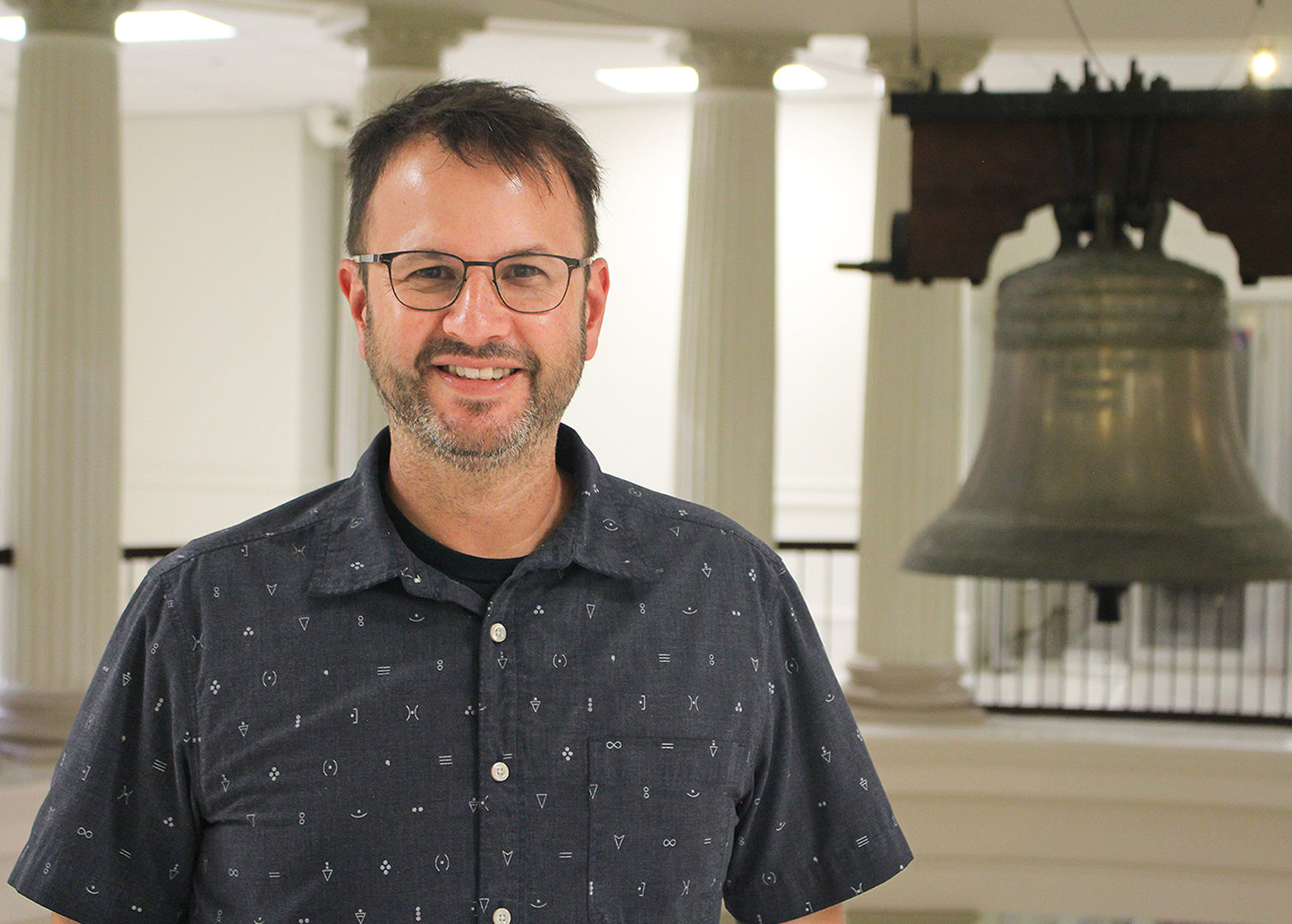
Throughout most of his life, Dr. Joshua Hicks was drawn to life’s big questions. Who am I? What makes my life meaningful
“These questions seemed kind of mysterious in some ways,” said Hicks. “And they also seemed like they’re not amenable to scientific inquiry.”
Now a professor in the Department of Psychological and Brain Sciences at Texas A&M University, Hicks' primary interest is existential psychology, a branch of psychology that studies these questions from a scientific perspective. His research examines how perceptions of free will, fear of death, and a sense of meaning and authenticity influence well-being and behavior.
A Scientific Approach to Meaningfulness
Over 20 years, Hicks estimates he has asked tens of thousands of people if they feel their lives are meaningful. Most report they find their lives “fairly consequential.” From these surveys and data collected from various studies, the results show that those who find meaning in their lives most often report higher levels of happiness.
“ People who find their life meaningful are less likely to be depressed and more likely to be happy,” explains Hicks.
In his TEDx Talk, Hicks explains the four ”Pillars of Meaning:” coherence, purpose, mattering and experiential experiences.
The Comfort of Coherence and Guidance of Purpose
With coherence, Hicks explains that we are natural meaning-makers — we often seek and find meaning without much effort.
“This important feeling of coherence provides a sense of existential comfort,” he said. “It allows us to think we can predict our behavior and the behaviors of others, and that we have some feeling of control.”
While people often equate coherence with purpose, the main difference, says Hicks, is a focus on clear goals. While coherence relates to understanding and making sense of our lives, purpose is about finding direction.
“There are big life purposes and callings, and there are small everyday things,” Hicks explains. "These daily goals make our actions feel purposeful. Research demonstrates that individuals with a sense of purpose tend to live longer and experience improved aspects of well-being.”
Lacking a sense of purpose can leave individuals feeling unanchored, as seen during major life transitions such as retirement or the empty-nest stage. Hicks underscores that purpose, whether profound or ordinary, must ultimately come from within.
“Intrinsic aspirations—things about which you are passionate that come from within versus the wishes of others—make life meaningful,” he said.
The Need for Significance
While purpose provides a goal to achieve, mattering is more about feeling that you are significant to people and the world. Sometimes referred to as “existential mattering” and “interpersonal mattering,” this means your personal experience feels valuable to the world or in your personal connections.
Without feelings of mattering, the opposite may creep in — feelings of insignificance. These thoughts and feelings can lead to depression and antisocial behavior.
Many of our most significant anti-social behaviors are, in part, motivated by an attempt to restate a sense of significance,” explains Hicks. “This suggests we should care about it, not just because we want people to feel better about themselves, but because we want society to function.”
The Power of Experience
Hicks describes the final Pillar of Meaning, experiential appreciation, as detecting and appreciating the beauty of life itself.
“Sometimes meaning is only about the experience itself,” he said, “like reconnecting with a friend on the weekend, calling a family member who you haven’t talked to in a while, feeling the sunset, feeling the seasons change—these are what we refer to as experiential experiences.”
What makes life experiences feel meaningful? Hicks says it’s the little things, such as connecting with people. “Having an authentic connection to anything, mostly to people but also to your environment, to yourself, to your god or to religion.”
Living Authentically

Hicks’ recent research examines the experience of authenticity, focusing on the types of cues individuals draw upon when identifying moments of feeling authentic.
People have varied beliefs about the definition of authenticity. Hicks says two primary factors influence our feelings of authenticity: self-integrity and experiential fluency.
"Integrity involves remaining consistent to your true self and what you care about the most—your core commitments and passions,” Hicks said. For instance, someone who considers themself religious but seldom attends church or prays may feel less authentic because their actions don’t necessarily align with their core beliefs or identity.
The second component of authenticity is the sense of feeling natural in your environment. For example, people typically feel more at ease and free of judgment around close friends and family, thus they are more inclined to be themselves. Simply put, feeling naturally yourself comes with less effort when one is in a welcoming environment.
Authenticity in Environmental Context: The Role Effort and Ease

While working with Hicks, doctoral student Lydia Needy has been pursuing her own research questions related to authenticity. The team’s Integrity-fluency Model argues that the cues of self-integrity and experiential fluency can work independently in authentic experiences.
For example, listening to music might feel authentic to someone simply because it feels natural and effortless, rather than because it reflects a larger set of personal values. Still, these two types of cues often work together in meaningful ways, shaping momentary experiences of authenticity.
Like Hicks, Needy is interested in what makes an experience feel truly authentic, such as how a person’s sense of self combines with the ease or flow of an experience to create that feeling.
She is particularly interested in how being in an environment that misaligns with one’s identity does not automatically make a person feel inauthentic. In those moments, people often work consciously to stay true to who they are and what matters most to them — a process that requires effort. “In my dissertation with Josh, I want to look at how those experiences of authenticity — when they are effortful yet authentic — can feel qualitatively different from other situations in which it was easy to be yourself.”
At its heart, this research asks how we create meaning and live authentically in a complex world. Each choice, connection and moment, whether large or small, becomes part of our ongoing search to understand who we are and who we are becoming.
